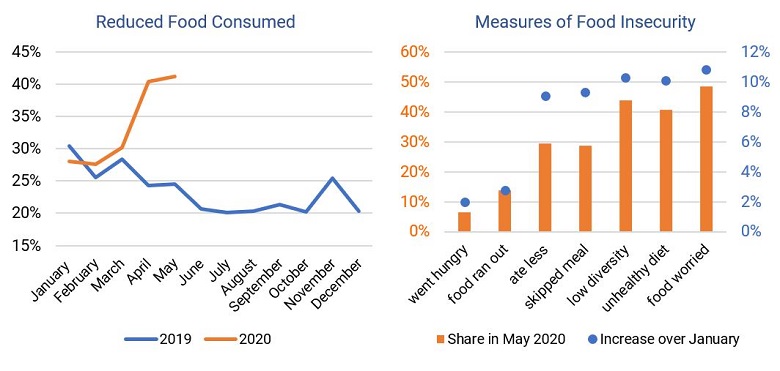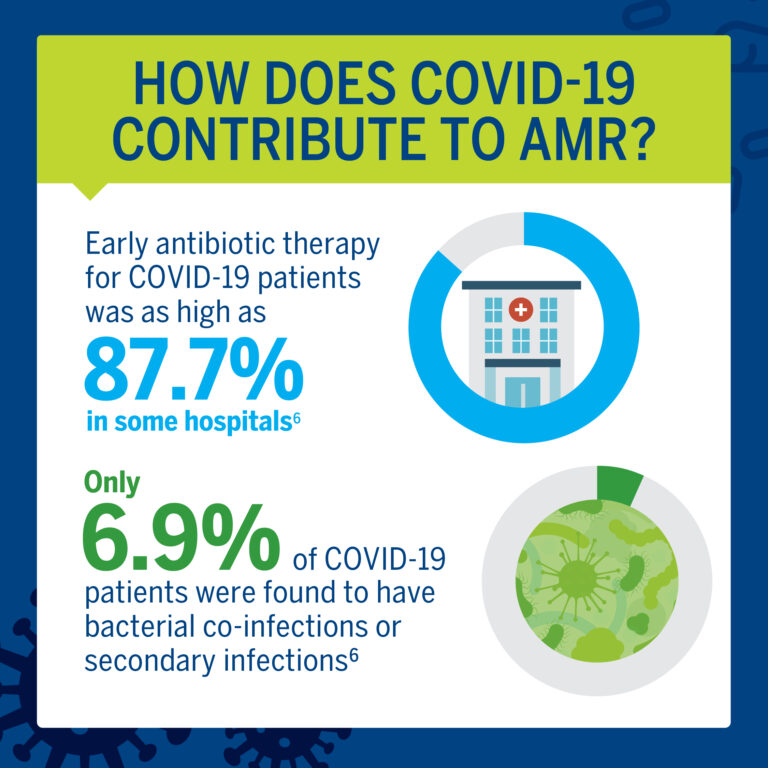“COVID-19 has been likened to an X-ray, revealing fractures in the fragile skeleton of the societies we have built”, UNSG Antonio Guterres meant it right.
We had our Experts shouting all along of a possible Pandemic yet we heard so less, so little. We as Human race, were not prepared. We knew nothing about our immediate enemy- a tiny virus with a bigger potential to kill millions.
But beyond killing, how many lives it has rattled and in how many ways, is still a matter in disguise. The second wave: more infectious, more penetrating and more inclusive describes the tale of inability of those who were barely surviving all along. To expect them to absorb the economic impacts of Pandemic is a bit discriminatory.
Apart from the bigger evils, Pandemic could shake the very basic structure of our society and economy: Food systems. Food insecurity coupled with inadequate social and political handling has led to a deeper crisis here.
Global Hunger Index (2020) calculated on the basis of total undernourishment of the population, child stunting, wasting and child mortality — has placed India at the 94th spot among 107 countries, far behind its neighbors.
We can claim historical antecedents such as poverty, inequality and food shortage as the prevailing reasons for this insufficiency but the Pandemic and allied issues were enough to debilitate our built capacities: PDS, MGNREGA, POSHAN 2.0 etc. all falling short to address this evil.
India’s demography is transitioning and the number of working-age people (20-59 years) will continue to increase for more than two decades and peak at 59% in 2041. But can a country rely on bodies that lie frail within?
With millions dying, millions falling in the poverty trap and millions left without basic support, the aspirations of the country seem dead already.
We, therefore, need a closer look at the attributes those have not yet unraveled their wrath on the ailing population. For instance, rural distress needs addressal as well as redressal.
Rapid Rural Community Response (RCRC) involves a collated study by over 60 non-governmental organizations based on 3 sets of studies during different times since lockdown.
The data collected from 1176 households across various Indian states, has exposed fallacies and impending troubles everywhere.
Terrifying findings:
India has made Herculean efforts to lift a record 273 million out of poverty in 10 years, says a 2020 UN report. But all it takes is a Pandemic to depict otherwise.
RCRC suggests there is persistent cutting down on food or even loans for acquiring food even after months of enduring through the Pandemic, before the supposed second wave. We expect more to drown in those murky waters looking at the current scenario.
Households informed to have been constantly cutting on nutritious food: 80% on milk, veggies and pulses alone register 50% cut.
Poorer and marginalized communities have been found more prone to food security. This is probably due to large-scale migration, loss of jobs and out-of-pocket expenditures due to disease.
National Family Health Survey (NFHS-V) and Global Food Policy Report 2021 suggest that this will have a long-lasting effect on children’s upbringing, efficiency and overall growth.
Other studies too picture the same gloomy-doomy story.
Independent Pew Research has suggested that in India, the middle class shrunk by over 32 million Households. This indicates a huge slip or transition of middle-class population to humbler kinds amidst the inadequate facilities to thrive.
Even 50% of loan being cashed by total Households in India, are reporting to do so for their daily food necessities. Inflation is playing hard all along and with more influx of migrants from cities bound by lockdowns, there is greater competition for the scarce resources.
74% Households across India have a migrant in it, from the lockdowns. Nearly half of these could only go back to respective cities of work in Dec-Jan (the supposed revival period), with half disadvantaged ones who could not fetch city dreams again.
This large-scale migration has exacerbated the problem even more, apart from mere crowding and crumbling of administrative systems.
Forest-dependent communities are normally the most vulnerable ones, and many of them, including indigenous people as well as returning migrants and urban workers, are now being pushed deeper into the woods to seek food, fuel, shelter, and protection from the risks of COVID-19, placing an additional and unconditional stress on the ecosystems.
This is fairly established by a new report released by the UN Department of Economic and Social Affairs (UN DESA) called Global Forest Goals Report 2021.
This report comes when there are enough economic contractions and disruptions in global as well as local trade, continuing to impact the global workforce.
Unsurprisingly, the pandemic has left these vulnerable populations facing job loss, reduced income, diminished access to markets and information, and women and youth, in particular, are experiencing a contraction in seasonal employment.
However, this is a story that has already been told. We need to understand now that these are the times to either make or break. We have a Life to commit loads of mistakes and learn from them. However, repeating similar mistakes is probably not a good option.
There are lives at stake.
Congo has made the recent headlines for wiping out Ebola for the 12th time. Ebola virus disease (EVD) or Ebola hemorrhagic fever, is again fatal in humans but prior experience of the DRC’s response team and health partners led them to bring an Epidemic under control in less than three months after its declaration.
Are we naïve as a Country? We started well enough but lost somewhere. We definitely to pull ourselves back together.
Our citizenry needs an assistance. We have solutions for it all only if we are willing to look deeper. For lost work, we have MGNREGS but it lacks funding, which the experts suggested long back.
For food, we have established efficient PDS, we can couple that with Iron-folic acid impregnated Rice for nutrients. For vaccines, we can undoubtedly utilize our experiences from Polio Programme.
We can revamp our Volunteers created in First Covid wave who sat idle hoping for some good work or our ASHA workers but they have not received their salaries since months.
Like the Lockdown proved a silver lining for our ailing Environment, this terrible condition of ours can thus prove to be an opportunity for us. We can change the ways we work; we operate, we see things.
All along, we had been two-steps behind this little virus, its surely a time that we move two-steps ahead of it. We have the experts who can help, we just need to listen to them and implement their suggestions seriously.
We had been told of Pandemics to come and our leadership did not care to listen. They warned us of impending Climate crisis, but have our expertise in things, we know when the Earth will begin to crumble. Anthropocene is yet to come for us.
Experts suggest of another disaster in Making: Anti-Microbial Resistance

Without Covid in regards, AMR is lone killer of 7 lakh deaths per year. It is a process of evolution of Virus, bacteria etc. to become resistant to available line of medicines and it threatens to undo a century of Medical progress as it takes years to develop a line of Antibiotics.
It can happen due to indiscriminate use of Antibiotics in medicine, agriculture, pollution, contamination, even untreated waste. Eg. Oxytocin uses in dairy.
Health Experts suggest an unprecedented impact on health (to be exact, more than 10 million annual deaths) and economy ($100 trillion) further if urgent steps are not taken while treating Covid.
In treatment of Covid, Government has issued a line of drugs which are being used in widespread means. The reports of Covid tests are taking considerable time when people are supposed to start the required and advised to start the treatment as early as possible.
For instance, many individuals appearing with mild disease without or even moderately touching pneumonia receive antibiotics. According to WHO report, Azithromycin is being widely used with hydroxychloroquine although it is not yet recommended outside of COVID-19 clinical trials.
A recent study again by WHO, conducted in intensive care units in 88 countries showed that although only 54% (8135/15 165) of patients had suspected or proven bacterial infection, 70% (10 640/15 165) of them had received at least one antibiotic.
What can AMR lead to?
Any possible resistance can complicate the simplest of surgical procedures, bacterial-viral-fungal infections, cancer therapies leading to neo-natal, infant or maternal deaths. There are more unimaginable perspectives to such threat.
Especially, Tuberculosis and HIV, where the available antibiotics options are bleak, one will have nothing to choose from, for its treatment in due time. 5.7 million people annually die because they simply cannot access the drugs even for the treatable infections. Now, that is gross and derogatory.
Understanding this in Jan 2020, the Indian Government introduced a draft legislation to place limits on antibiotic residues released into the environment at pharmaceutical manufacturing sites.
It even tried to curb the unchecked use of Oxytocin in dairy but because of its indispensable use during human deliveries, it could not be made rigid.
What is the problem with Antibiotics?
A biggest challenge in AMR is that production of a new Antibiotic is a long-driven, intensive process that requires constant inputs; of money, ideas and other incentives.
In lieu of this, no new Antibiotic has seen the market in last 3 decades. Large pharmaceutical research groups have lost their faith and barely invest in such risky genre.
According to PEW Trusts reports, about 95% of Antibiotics in making tend to come from small Companies.
A proper balance of sanctions and incentives for Antibiotics is needed to curb AMR. Like Climate consensus, all the global investors and policymakers need to join hands to tend to this menace, a silent killer that knows its way, another silent Pandemic in making. It will too, not spare lives, just like Covid.





